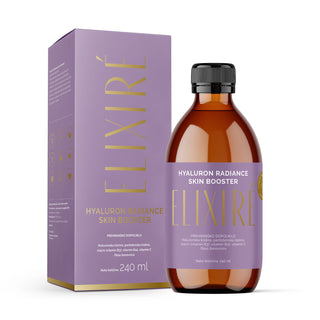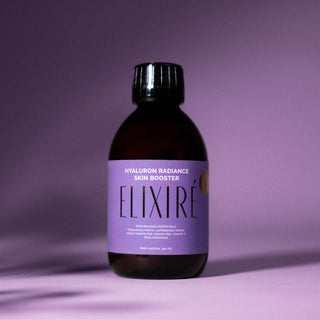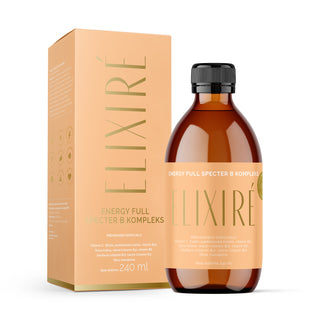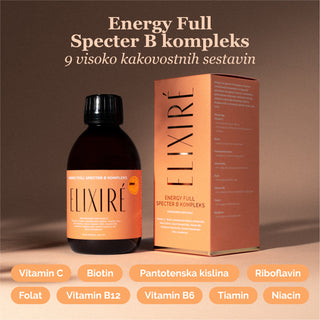Folic acid, also known as vitamin B9, is one of those nutrients we often hear about in connection with pregnancy, but its role in the body goes beyond just fetal development. It is a water-soluble vitamin that is essential for cell growth, DNA formation, immune system function and brain health(1*) In its synthetic form, it is known as a dietary supplement, while in its natural form – as folate – found in many foods, especially dark green leafy vegetables, legumes, and citrus fruits.
The body needs folic acid, but it cannot store it in large quantities, so it is regular intake through diet or supplements crucial for maintaining health. (2*)
Importance during pregnancy
During pregnancy, adequate folic acid intake is particularly important, as contributes to the proper development of the fetus and reduces the risk of congenital abnormalities, such as spina bifida [3]. This is why women planning a pregnancy are advised to start taking folic acid supplements as early as before conception.
Impact on psychological health and energy
Even if pregnancy is not in your plans, folic acid remains extremely important, as contributes to normal psychological function, helps with blood formation and reduces fatigue. (4*)
Folic acid deficiency can manifest itself in the form of chronic fatigue, anemia, pallor, mood swings, and difficulty concentratingIn more severe cases, it can also lead to nervous system disorders.
Because vitamin B9 is involved in neurotransmitter synthesis, such as serotonin and dopamine, its sufficient presence in the body has a significant impact on mood and mental health(5*) Deficiency of this vitamin is also associated with an increased risk of depression and cognitive problems, especially in the elderly. (6*)
Recommended daily intakes
Daily folic acid requirements vary depending on age and stage of life.
-
Adults need approximately 400 micrograms per day,
-
pregnant women 600 micrograms,
-
breastfeeding mothers around 500 micrograms. (1*)
Although it is possible to consume folic acid through food, modern diets often do not provide sufficient amounts, so quality nutritional supplements can be a very welcome support. (7*)
Liposomal B-complex for better absorption
At Elixré we offer Liposomal Energy Full Spectrum B-complex, which, in addition to folic acid, contains all other B vitamins – in advanced liposomal form, which allows better absorption and greater efficiencyIts natural tangerine flavor and liquid form make it great for everyday use, especially for those who want more energy, better concentration, and immune system support.
Effects on skin, hair and nails
Folic acid also plays an important role in skin, hair and nail healthParticipates in cell division and production of new tissues, which means that its sufficient intake can affect faster skin regeneration, stronger hair and less brittle nailsFor those who want comprehensive support for their appearance from the inside out, Hair Fusion capsules the right choice – they contain a combination of folic acid, biotin, zinc and plant extracts that help maintain a healthy and radiant appearance.
Foods rich in folic acid
In the diet, folic acid can be found in: spinach, broccoli, Brussels sprouts, lentils, beans, chickpeas and fruit, such as oranges, avocados and bananas.Many baked goods and cereals are also enriched with folic acid. But because vitamin B9 sensitive to heat and light, can lose some of its effectiveness when cooked. (8*) Therefore, it is recommended to also get some folic acid through unprocessed foods or quality nutritional supplements.
Broad spectrum of action and prevention
The role of folic acid is extremely broad – from prevention of anemia and cardiovascular diseases to mood support and mental acuityResearch shows that adequate levels of this vitamin can reduces the risk of certain forms of cancer, especially colon cancer, since folate It plays a key role in DNA repair and preventing cellular mutations. (9*)
Make folic acid part of your routine
If you suspect that you may not be getting enough folic acid, whether due to dietary habits, specific lifestyle circumstances, or certain medical conditions, it is a good idea to consider taking a supplement. However, always consult a healthcare professional before starting to take it to determine which form and dosage would be most appropriate for you.
Folic acid is not just a “vitamin for pregnant women,” but a fundamental support for every individual – regardless of gender or age. With its help, you can improve your mood, strengthen your immune system, ensure healthy blood and maintain mental freshness in the long termSo make it a part of your diet – every day, not just on special occasions.
Literature: (*)
- Source: Folate, (Fact Sheet for Health Professionals), https://ods.od.nih.gov/factsheets/Folate-HealthProfessional/
- Source: The Concept of Folic Acid in Health and Disease, (Y. Shulpekova, V. Nechaev, S. Kardasheva, A. Sedova, A. Kurbatova, E. Bueverova, A. Kopylov, K. Malsagova, JC Dlamini, V. Ivashki), https://pmc.ncbi.nlm.nih.gov/articles/PMC8235569/
- Source: Daily iron and folic acid supplementation during pregnancy, (WHO), https://www.who.int/tools/elena/interventions/daily-iron-pregnancy
- Source: Scientific Opinion on the substantiation of health claims related to folate and contribution to normal psychological functions (ID 81, 85, 86, 88), maintenance of normal vision (ID 83, 87), reduction of tiredness and fatigue (ID 84), cell division (ID 195, 2881) and contribution to normal amino acid synthesis (ID 195, 2881) pursuant to Article 13(1) of Regulation (EC) No 1924/2006, (EFSA), https://www.efsa.europa.eu/en/efsajournal/pub/1760
- Source: Folic acid: neurochemistry, metabolism and relationship to depression, (RTP Paul, AP McDonnell, CB Kelly), https://pubmed.ncbi.nlm.nih.gov/15378677/
- Source: The association of folate and depression: A meta-analysis, (A. Bender, KE Hagan, N. Kingston), https://pubmed.ncbi.nlm.nih.gov/28759846/
- Source: Folate bioavailability: implications for establishing dietary recommendations and optimizing status, (M.A. Caudill), https://pmc.ncbi.nlm.nih.gov/articles/PMC2854911/
- Source: The effect of different cooking methods on folate retention in various foods that are among the major contributors to folate intake in the UK diet, (D.j. McKillop, K. Pentieva, D. Daly, JM McPartlin, J. Hughes, JJ Strain, JM Scott, H. McNulty), https://www.cambridge.org/core/journals/british-journal-of-nutrition/article/effect-of-different-cooking-methods-on-folate-retention-in-various-foods-that-are-amongst-the-major-contributors-to-folate-intake-in-the-uk-diet/9CE2FDC1E7BA8100D5F11AB87F21BE1D
- Source: Folate and colorectal cancer prevention, (RA Hubner, RS Houlston), https://pubmed.ncbi.nlm.nih.gov/19088716/








